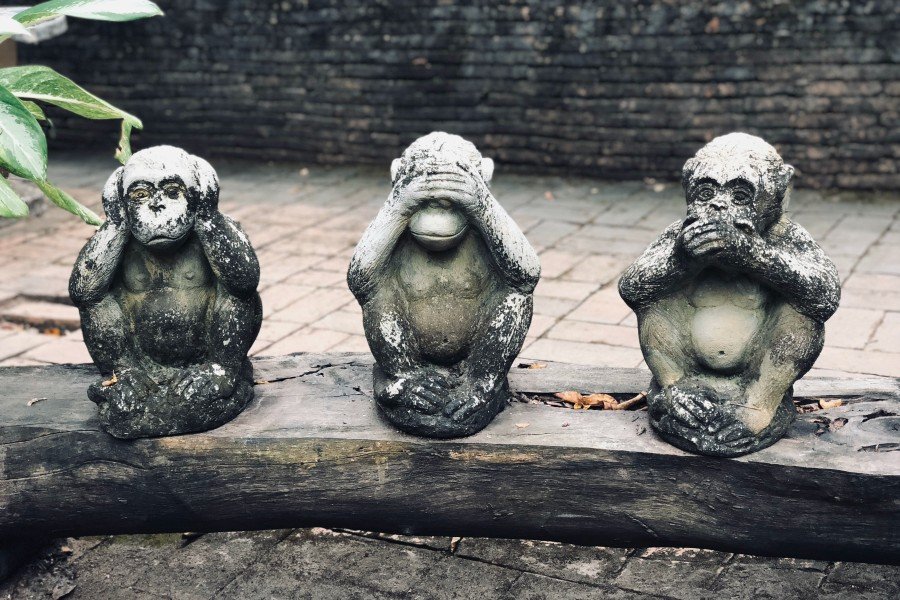‘Women Talking’ - Unveiling the Global Impact of Victim Silencing and Shaming and Advocating for Time for Change!
Words by: Intisar AlQsar, IWI Director of Advocacy & Public Information
(Originally published 23 May 2023)
Miriam Toews' poignant novel, "Women Talking," powerfully demonstrates that the impact of victim silencing and shaming extends far beyond specific communities, resonating on a global scale. By exploring the pervasive nature of these issues and their destructive consequences, Toews invites readers to confront the harsh realities faced by survivors worldwide, supported by alarming statistics that underscore the urgency of addressing this crisis.
Set within a Mennonite community in Bolivia, "Women Talking" serves as a microcosm of the wider issues faced by women across cultures and countries. While the specific circumstances may vary, the patterns of victim silencing and shaming remain tragically consistent. In societies around the world, cultural practices, societal attitudes, and religious beliefs often conspire to create barriers that prevent survivors from sharing their experiences, seeking justice, and finding healing.
Consider, for example, the prevalence of violence against women. According to the World Health Organization (WHO), approximately one in three women globally experience physical or sexual violence in their lifetime. These statistics demonstrate the urgent need for societies to address the underlying issues that perpetuate violence and create an environment in which victims are blamed or silenced.
In India, incidents of rape and violence against women have garnered significant attention in recent years. The National Crime Records Bureau reported over 32,000 cases of rape in 2019 alone. These numbers, although distressing, are likely underreported due to factors such as fear of retribution, societal stigma, and inadequate support systems for survivors. It highlights the prevalence of victim silencing and the urgent need for societal change.
The impact of religious and cultural traditions on victim silencing and shaming cannot be overlooked. In many societies, deeply entrenched beliefs and practices prioritize preserving family honour or upholding rigid gender roles, often at the expense of survivors. Honour-based violence, prevalent in some societies, seeks to control women's behaviour and punish those who violate traditional norms. In such cases, victims often face pressure to remain silent, forbidden from having #abortions and in some cases forced to marry their rapists, fearing the consequences of speaking out against their own families or communities.
An example of this is the practice of female genital mutilation (FGM) in various countries across Africa, Asia, and the Middle East. It is estimated that over 200 million girls and women alive today have undergone FGM. This deeply rooted cultural practice not only causes immense physical and psychological harm but also perpetuates a culture of silence and complicity, making it incredibly difficult for survivors to come forward and seek justice.
To effect change, it is imperative to challenge societal attitudes and dismantle the systems that perpetuate victim silencing and shaming. Governments and organizations worldwide must invest in support services for survivors, including access to counselling, legal aid, and safe spaces. Comprehensive legal frameworks that protect survivors and hold perpetrators accountable are essential. Additionally, awareness campaigns, educational programs, and cultural initiatives that challenge harmful gender norms, promote empathy, and foster respect for all individuals are vital to creating lasting change.
Initiatives like the #MeToo movement have played a pivotal role in sparking global conversations around sexual harassment and assault. By encouraging women to break their silence and share their stories, these movements have exposed the widespread nature of these issues and ignited a call for justice. However, it is crucial to ensure that these conversations go beyond social media and lead to tangible action, policy reform, and systemic change.
Religious institutions also have a significant role to play in addressing victim silencing and shaming. They must critically examine their teachings and practices, ensuring that they prioritize compassion, justice, and the well-being of all members. By actively condemning victim blaming and silencing, religious leaders can create safe spaces for survivors within their communities, fostering healing and providing the support necessary for recovery.
While "Women Talking" offers a compelling narrative that reveals the global impact of victim silencing and shaming the above alarming statistics on rape and violence against women serves as a clarion call for change. By recognizing the prevalence of these issues across countries, cultures, and religions, and by implementing comprehensive strategies that support #survivors, challenge societal attitudes, and promote gender equality, we can strive towards a world where survivors are heard, their trauma is acknowledged, and justice prevails. It is only by confronting these uncomfortable truths that we can create a safer, more compassionate world for all.
Read this article & follow us on:




